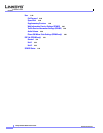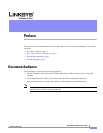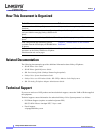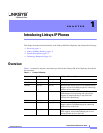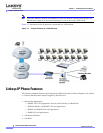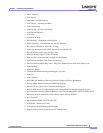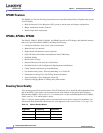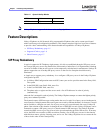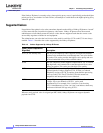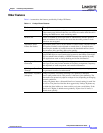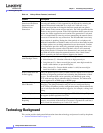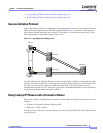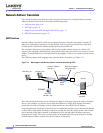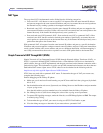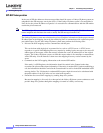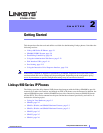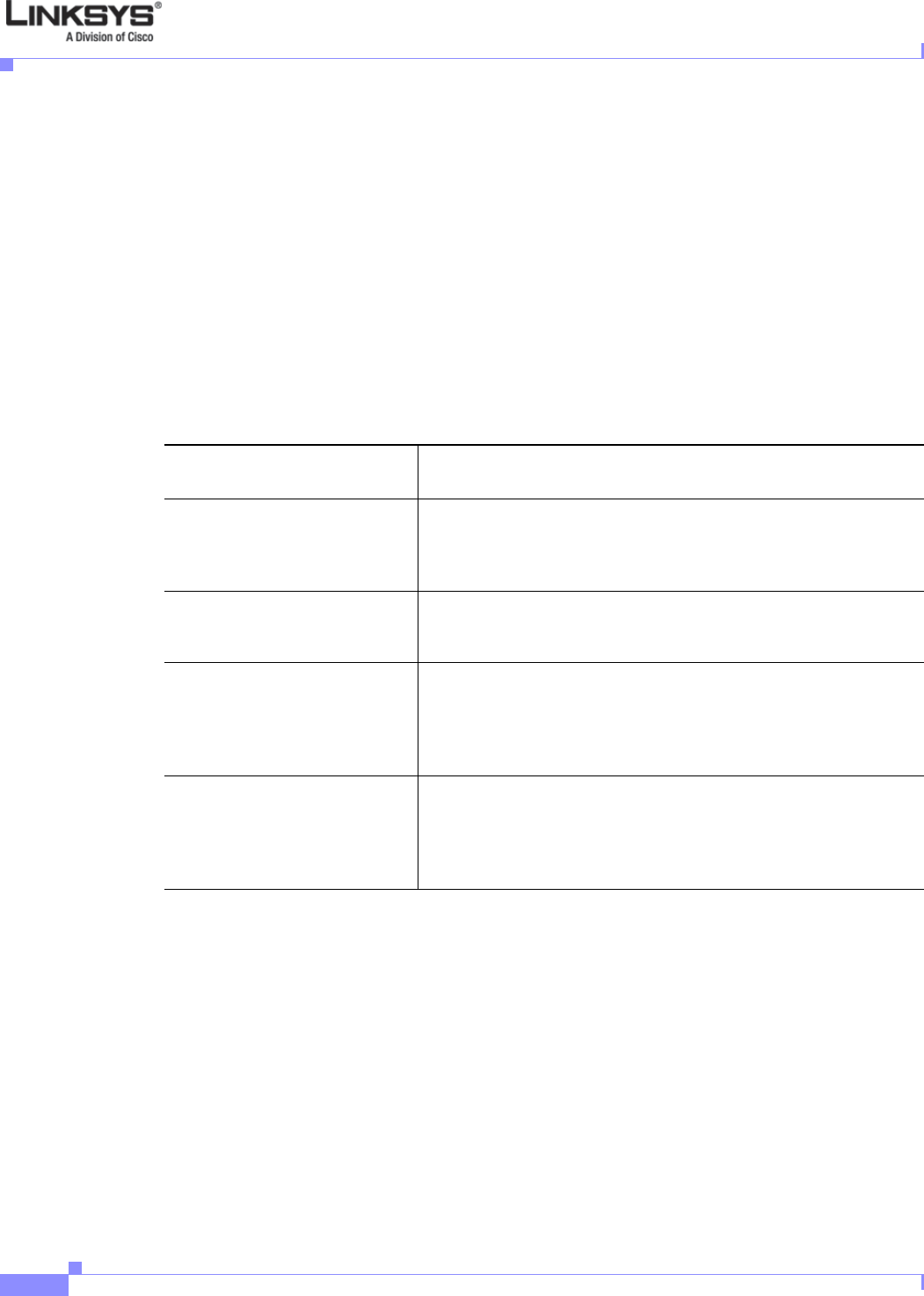
1-6
Linksys IP Phone Administrator Guide
Firmware Version 5.1
Chapter 1 Introducing Linksys IP Phones
Feature Descriptions
If the Linksys IP phone is currently using a lower priority proxy server, it periodically probes the higher
priority proxy to see whether it is back on line, and attempts to switch back to the higher priority proxy
whenever possible.
Supported Codecs
Negotiation of the optimal voice codec sometimes depends on the ability of Linksys IP phone to “match”
a codec name with the far-end device/gateway codec name. Linksys IP phones allow the network
administrator to individually name the various codecs that are supported such that the correct codec
successfully negotiates with the far-end equipment.
The administrator can select the low-bit-rate codec used for each line. G.711a and G.711u are always
enabled. Table 1-3 describes the codecs supported by the Linksys IP phones.
When no static payload value is assigned per RFC 1890, Linksys IP phones can support dynamic
payloads for G.726.
Table 1-3 Codecs Supported by Linksys IP Phones
Codec (Voice Compression
Algorithm) Description
G.711 (A-law and mµ-law) This very low complexity codec supports uncompressed 64 kbps
digitized voice transmission at one through ten 5 ms voice frames
per packet. This codec provides the highest voice quality and uses
the most bandwidth of any of the available codecs.
G.726 This low complexity codec supports compressed 16, 24, 32, and 40
kbps digitized voice transmission at one through ten 10 ms voice
frames per packet. This codec provides high voice quality.
G.729A The ITU G.729 voice coding algorithm is used to compress
digitized speech. Linksys supports G.729. G.729A is a reduced
complexity version of G.729. It requires about half the processing
power to code G.729. The G.729 and G.729A bit streams are
compatible and interoperable, but not identical.
G.723.1 Linksys IP phones support the use of ITU G.723.1 audio codec at
6.4 kbps. Up to two channels of G.723.1 can be used
simultaneously. For example, Line 1 and Line 2 can be using
G.723.1 simultaneously, or Line 1 or Line 2 can initiate a three-way
conference with both call legs using G.723.1.



